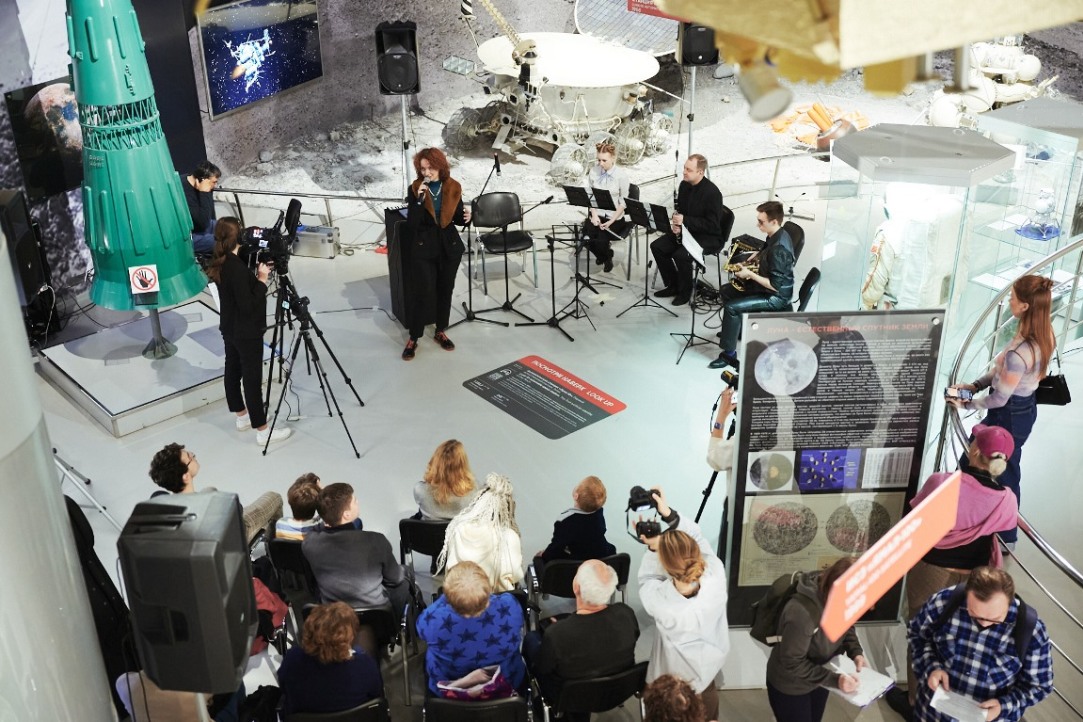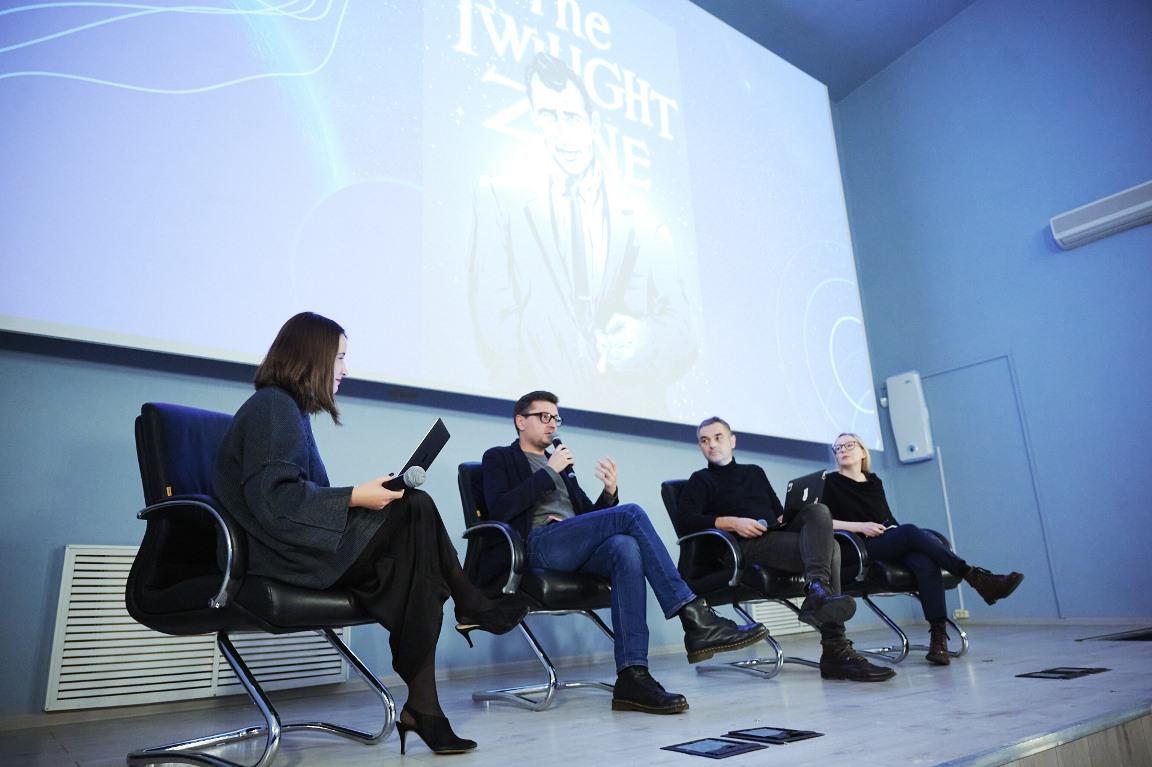'In Outer Space, Encounters between Humans and Non-humans Could be in a Variety of Languages'

On November 5, the Museum of Cosmonautics in Moscow hosted an HSE-organised event entitled 'Cosmic Bodies: A Philosophical and Musical Party for Cyborgs'. The speakers and the audience reflected on popular-culture depictions of humans as they explore outer space.
The event was co-organised by the HSE Faculty of Creative Industries, its projects 'Space in Media Culture' and 'Posthumanism(s) in Media Culture and Contemporary Art', and HSE's Media Sharks music label.
Evgenia Nim, associate professor of the HSE Institute of Media, explained how the event got its title of ‘Cosmic Bodies’. 'In space science, cosmic bodies are physical objects that naturally occur in the observable universe, for example, comets, asteroids, planets, stars, and galaxies. But we are using this term in a broader sense as a metaphor for any type of intelligent cosmic entity,' she said. According to Nim, this metaphor can lead to a more productive discussion about humanity's potential future in outer space.
The party featured a futuristic, space-themed digital fashion show created by students of HSE's Art and Design School as part of the project 'Space in Media Culture'. Virtual cyborg models walked on an 'extra-terrestrial' stage dressed in garments of uncommon textures and styles.
The show was followed by a philosophical discussion moderated by Natalia Vereshchagina, visiting lecturer of the HSE Institute of Media. The speakers reflected on the concept of humans (and non-humans) in space using popular film characters as examples. Alexander Pavlov, professor at the HSE School of Philosophy and Cultural Studies, explored the theme through the prism of The Twilight Zone series. He discussed how this early 1960s programme addressed the issues of post-colonisation with reference to outer space: 'We must find ways to make peace and stay friends; there may be intelligent beings out there who wish to contact or colonise us. This is one of the things posthumanism is all about: changing not only our language, but our way of thinking.'

Panos Kompatsiaris, assistant professor at the HSE Institute of Media, referred to 2001: A Space Odyssey by Stanley Kubrick and The Martian by Ridley Scott, as well as to Elon Musk's interplanetary project. These stories of space exploration and the role of humans in this process are highly popular in contemporary media culture. 'Outer space is depicted as territory that must support human life, including by providing the right atmosphere and material resources such as water, soil, and minerals,' Kompartsiaris said. 'These resources must lend themselves to human impact, so they may be transformed and used for the reproduction of human life.'
In the finale of the discussion, Chang Li, Master's student of the HSE Critical Media Studies programme, presented her own musical performance about outer space and humans' place in it, featuring a conversation between the captain of a time machine and a passenger about to be transported to an immortal future. They discuss the human dimension of a future where people will get new bodies and no one will ever die.
According to Nim, 'In the context of space exploration, human transformation and encounters between humans and non-humans can be discussed using a variety of languages not limited to the languages of philosophy or media, but also in the language of music. Music can generate special feelings and a kind of experience that words are unable to convey. Music is one of the best ways to reflect on something that falls outside the limits of human reason.'
The Cosmic Bodies event closed with a specially prepared concert by two musical groups. The HSE Design Orchestra led by Petr Skovorodnikov premiered two electro-acoustic compositions by Evgenia Evpak: Random UFO, a five-part sinfonietta, and Voice of Reason, an experimental piece created from audio recordings of the event speakers' presentations. Both compositions will be published under HSE's Media Sharks label in December 2022. Visitors to the Museum of Cosmonautics could also hear a number of musical compositions, including variations on some of Dvar Band's hits, performed by GAMEnsemble led by Oleg Paiberdin.
Petr Y Skovorodnikov

